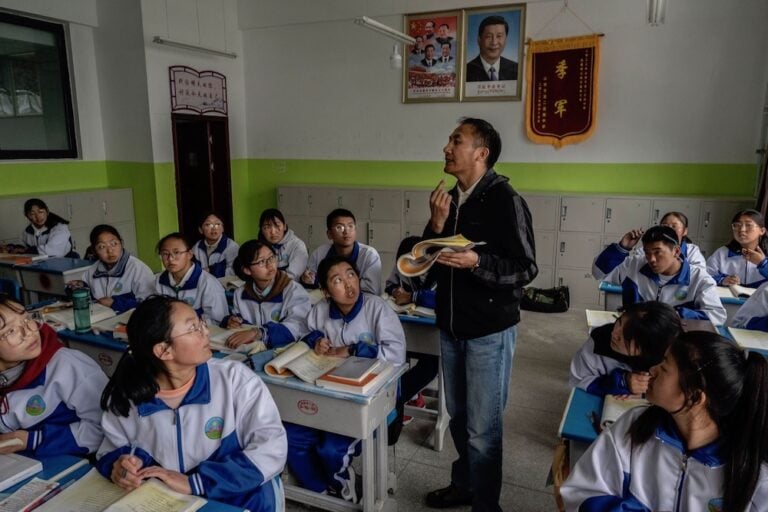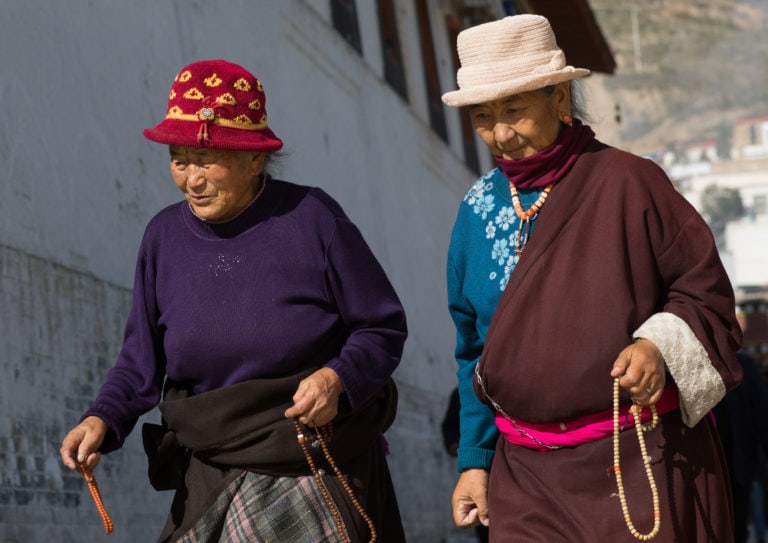(RSF/IFEX) – The following is a 21 January 2002 RSF press release: Ngawang Choephel released after six years of detention After six years in jail, Ngawang Choephel, a Tibetan ethnomusicologist and documentary filmmaker, was released 12 years early from Chengdu prison, China, on 20 January 2002. Ngawang Choephel flew immediately to Detroit, USA, where he […]
(RSF/IFEX) – The following is a 21 January 2002 RSF press release:
Ngawang Choephel released after six years of detention
After six years in jail, Ngawang Choephel, a Tibetan ethnomusicologist and documentary filmmaker, was released 12 years early from Chengdu prison, China, on 20 January 2002. Ngawang Choephel flew immediately to Detroit, USA, where he arrived on 21 January, accompanied by an American diplomat based at the US Embassy in Beijing.
John Kamm, director of the Di Hua Foundation, a Chinese political prisoners’ rights watchdog, confirmed that Ngawang Choephel was released on “medical parole”, by virtue of a 1990 Chinese regulation that grants release to prisoners suffering ill-health who have served one third of their sentence.
Ngawang Choephel was arrested at a market in Shigatse, south west of Lhassa, while taking pictures for a documentary on Tibetan dances and songs. He was sentenced to 18 years in jail in November 1996 for “subversion”, “spying” and “anti-revolutionary activities”. Ngawang Choephel, 34, lived in India since he became a refugee at the age of two. He left India in 1993 and went to study in the US.
His mother Sonam Dekyi, still a refugee in India, ceaselessly campaigned for his release. She used to demonstrate almost every day in front of the Parliament in New Delhi so that her son, whom she only saw once after his arrest, would not be forgotten. Tens of thousands of people worldwide took part in the campaign for Ngawang Choephel’s release. Recently, more than 50 French mayors signed a petition in support of his release at the instigation of Maires de France magazine, which had sponsored the filmmaker.
RSF points out that 13 journalists and 19 cyberdissidents are still languishing in jail in China. The press freedom watchdog welcomes Ngawang Choephel’s release from prison, but regrets the fact that it took so long.
– First of all because the journalist was a prisoner of conscience, incarcerated simply because of his opinions, and not, as the Chinese authorities charged, for “spying for the Tibetan government in exile and fomenting separatism”.
– Secondly, because during this arbitrary detention, Ngawang Choephel’s health badly deteriorated. Despite the fact that a number of political and artistic figures, as well as human rights organisations, appealed to the Chinese authorities to improve his appalling conditions in jail, the Tibetan filmmaker never received proper treatment for diseases he suffered during his years in a filthy cell, including liver troubles, pulmonary, stomach and urine infections. He may also have contracted tuberculosis in Chinese jails.


